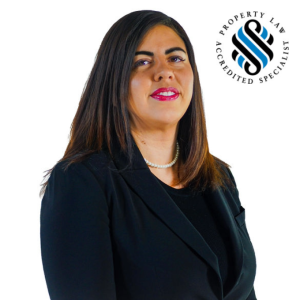Buying or selling property is one of the largest financial transactions most people will ever undertake.
It’s natural to compare quotes when choosing a conveyancer or lawyer — but understanding what you’re paying for is far more important than focusing on the number.
Conveyancing is not just administrative work. It involves detailed legal review, risk management and coordination across multiple parties. This article explains what conveyancing fees cover, the difference between professional fees and disbursements, and why “cheap conveyancing” can quickly become expensive when something goes wrong.
What a Conveyancing Lawyer Actually Does
A complete conveyancing matter in NSW typically spans six weeks and involves dozens of legal and practical steps.
Your lawyer’s role usually includes:
Reviewing the Contract for Sale and all prescribed disclosure documents;
Advising you on terms, risks and required amendments;
Negotiating changes to the contract with the other party’s lawyer or conveyancer;
Managing the transaction from exchange through to settlement (usually over 42 days);
Conducting title, planning and council searches;
Liaising with the real estate agent, lender, broker and council;
Calculating settlement adjustments and preparing transfer documents;
Scheduling and overseeing electronic settlement through PEXA;
Confirming the legal transfer of funds and registration of ownership.
Each of these steps carries legal and financial implications. A skilled property lawyer anticipates problems before they arise and ensures the matter stays compliant, timely and stress-free.
If a conveyancing service is incredibly cheap, how much time do you think they are actually putting into all of this work?
Professional Fees vs Disbursements
Conveyancing costs are made up of two main components:
Professional Fees
These cover your lawyer’s time, expertise and responsibility for managing the entire transaction. They include contract review, legal advice, negotiation, preparation of documents, and attending to settlement. Lawyers are accountable for the accuracy of the advice and documents provided.
Disbursements
These are the third-party charges your lawyer arranges on your behalf, such as:
Title and plan searches;
Section 10.7 Planning Certificates;
Drainage and sewer diagrams;
PEXA or settlement-platform fees;
Verification-of-identity and registration charges;
Couriers, settlement agents or bank fees.
As these are third party costs they are typically charged on top of any professional fees that your conveyancer might charge you.
Why “Cheap Conveyancing” Can Become Expensive
Conveyancing is time-critical. Missing a deadline, overlooking a clause or failing to detect an issue on title can lead to penalties, settlement failure or loss of deposit.
Clients sometimes engage a low-cost conveyancer only to discover partway through that something has gone wrong — a defective contract, an undisclosed easement, or the other party to the transaction not doing what they’re supposed to. When that happens, they need a specialist solicitor to step in urgently.
A lawyer taking over mid-transaction must first review every document, email and communication to understand what has occurred before they can give any advice. That process takes time, is considerably more expensive, and usually happens under intense pressure as settlement deadlines approach.
What might have been a manageable issue early on becomes a stressful, urgent and costly problem later. Engaging an experienced property lawyer from the start avoids that situation altogether.
Why Fees Differ Between Firms
Conveyancing fees vary for legitimate reasons, including:
The complexity of the property (strata, off-the-plan, commercial or rural titles);
The experience and qualifications of the professional handling the matter;
The extent of negotiation or contract amendment required;
The level of communication and client support provided;
The degree of risk and responsibility undertaken by the practitioner, for example higher end properties might attract higher fees.
Lawyers are also required to maintain professional indemnity insurance and comply with the Legal Profession Uniform Law, which ensures accountability and protection for clients.
Fixed-Fee Quotes and Out-of-Scope Work
Many firms, including ours, offer fixed-fee conveyancing. This provides clients with cost certainty — but every transaction is different, and unexpected issues sometimes arise.
Fixed quotes typically assume a standard transaction. They don’t always cover new or unforeseen matters such as disputes that arise during the transaction, issues where a party fails to comply with its obligations, extensions to settlement or other variations to the contract once entered into.
When these arise, additional legal work is often required outside the fixed scope.
The Real Value of a Conveyancing Lawyer
A property lawyer doesn’t just “process” a transaction — they protect you from legal risk.
Their value lies in the problems they prevent:
Identifying issues in contracts that could void or delay settlement;
Ensuring disclosure obligations are met so you don’t face claims later;
Managing communication with banks and the other side to keep settlement on track;
Providing advice that stands up if a dispute ever arises.
Quality conveyancing is proactive, not reactive. The cheapest quote rarely includes the judgment, strategy and accountability that come with legal expertise.
What to Expect From a Good Conveyancing Lawyer
Regular updates throughout the six-week process;
Early detection of risks or missing documents;
Clear explanations of your rights and obligations;
Proactive coordination with lenders and agents;
Transparent, itemised billing that distinguishes fees and disbursements;
Professional indemnity cover and compliance with NSW legal standards.
This level of service minimises stress and ensures that when settlement day arrives, everything happens smoothly.
Why Cost Shouldn’t Be the Deciding Factor
Property transactions involve complex legal rights, significant sums of money, and immovable deadlines. Saving a few hundred dollars upfront can be false economy if an error later causes a failed settlement or dispute, which can end up costing hundreds of thousands or even millions of dollars.
An experienced lawyer provides value not through lower fees but through certainty, accountability and peace of mind. The right legal advice protects what is often your most valuable asset.
Conveyancing in NSW
If you're getting a clear picture of conveyancing costs in NSW, you may also find these related guides useful to understanding the bigger picture around property transactions:
By exploring these resources together, you’ll not only understand the upfront costs, but also how they fit into the larger legal, contractual and strategic aspects of property transactions in NSW.
Conclusion
Conveyancing is more than administrative paperwork — it is the legal backbone of a property transaction.
A good lawyer combines precision, communication and risk management to ensure every step is done correctly and on time.
Our property team includes multiple Accredited Specialists in Property Law who act for buyers and sellers across Sydney and NSW. If you’re buying, selling or transferring property, give us a call or submit an enquiry now to speak with one of our conveyancing lawyers.












